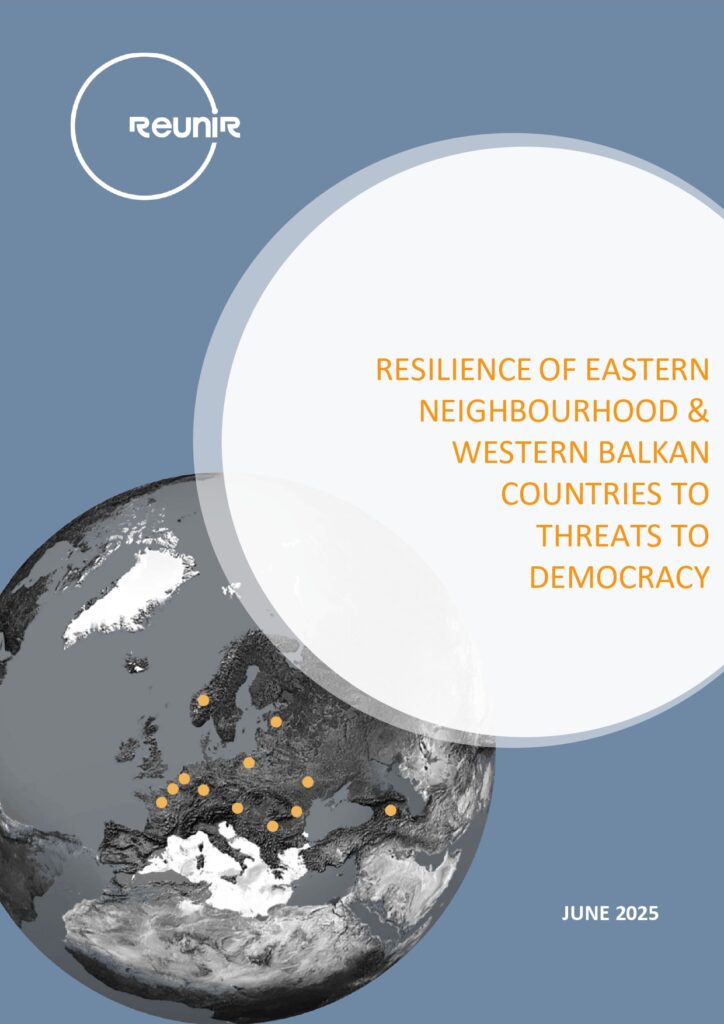Executive summary
This Working Paper, the second deliverable of REUNIR Work Package 5, aims to understand how resilient the nine Candidate Countries (CC) of the Western Balkans (WB) and Eastern Neighbourhood (EN) are to political threats, as well as the EU’s capacity to assist in building resilience in these countries.
All CCs face multiple threats, both in the realm of political instruments and cultural diplomacy, most acutely stemming from Russia, but also to a lesser extent China, Türkiye, the US, and the Gulf countries. CCs present major domestic vulnerabilities to those threats. Ukraine stands as an exception in this regard, as it has overcome many of its vulnerabilities, largely as a consequence of Russian aggression. Nevertheless, WB and EN countries have developed resilience capacities to cope, adapt and bounce back when faced with those threats, often with EU support. CCs have adopted legislative, institutional and political frameworks in response to political interference, though many weaknesses and loopholes remain. Resilience to cultural diplomacy instruments comes from below and draws upon cohesive national identities going beyond ethnolinguistic divisions, as well as trust within society and towards the institutions.
The resilience assessment reveals that whereas some CCs have enhanced their resilience capacities to external political threats in recent years (Ukraine and, to a certain extent, Moldova), others see their resilience severely diminished faced with escalating domestic challenges, notably in Bosnia and Herzegovina, Serbia, and Georgia. The analysis also highlights the growing role played by civil society in countering those threats, taking over in areas where the state fails.

